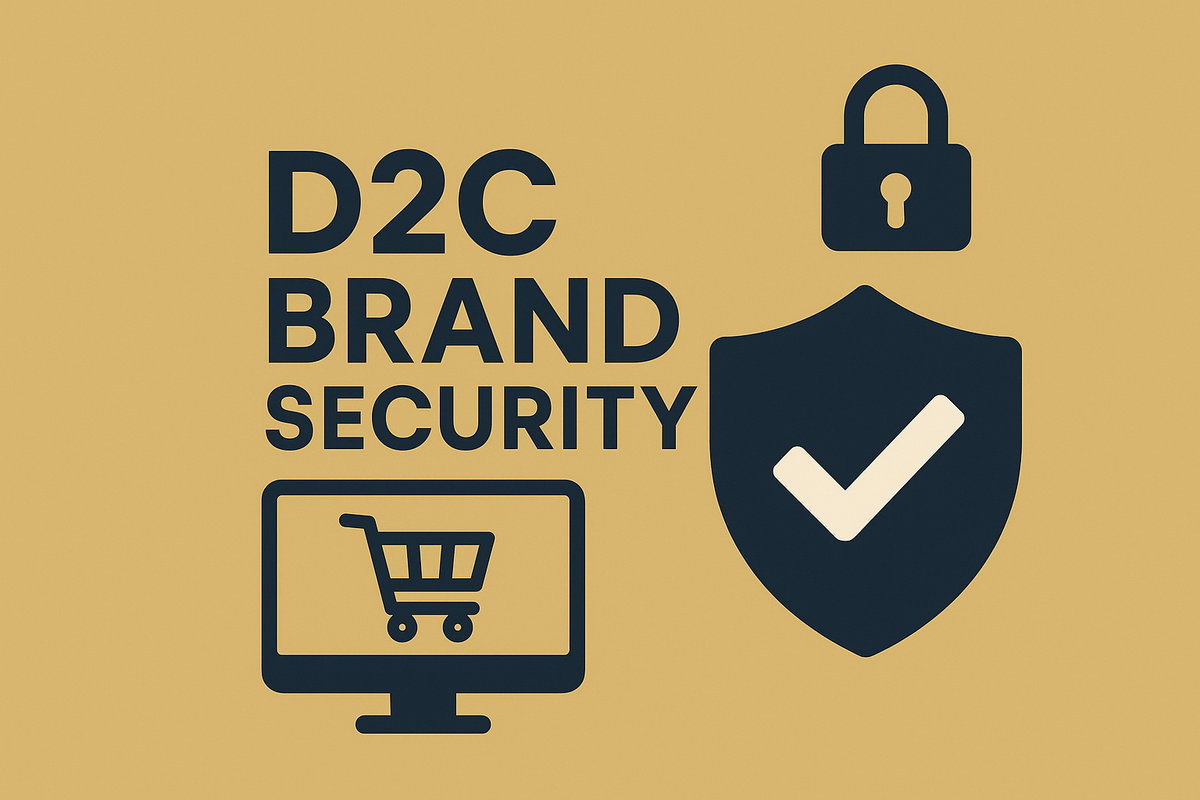D2C Brand Security: Direct-to-Consumer Platform Protection

Introduction
In recent years, D2C brands have transformed how companies engage their customers by eliminating intermediaries and establishing direct relationships. However, this proximity comes at a price: the responsibility to protect consumer data, ensure secure transactions, and defend brand reputation in an increasingly digital and threat-laden environment. Cybercriminals exploit vulnerabilities to impersonate brands, steal data, or run scams that can harm both customers and the brand’s market standing. Robust security practices are not optional—they are essential for sustainable growth and trust in 2025.
Common Security Threats for D2C Brands
- Counterfeit Products and Brand Impersonation: Fraudsters create fake product listings and deceptive websites, eroding consumer trust and stealing revenue.
- Phishing and Social Engineering: Customers and employees may be targeted to steal credentials or payment information.
- Data Breaches: Sensitive customer information, if leaked, damages reputation and leads to regulatory penalties.
- Domain Squatting and Cyberattacks: Attackers register lookalike domains or launch attacks to impersonate or hijack brand assets.
Essential Practices for D2C Platform Security
Conduct Regular Brand Audits and Monitoring
Know where your brand stands digitally. Monitor your website, marketplaces, social media, and search engines for counterfeit activity, fake accounts, or unauthorized use of brand elements. Employ automated tools powered by AI to detect abuse early and enable fast takedown actions.
Register and Secure Intellectual Property
Trademark your brand name, logo, slogans, and register key domain names. This legal groundwork empowers you to respond swiftly to infringers and cybersquatters, both locally and globally.
Implement Zero Trust and Strong Authentication
Adopt zero trust principles on your platforms, requiring strict identity verification before granting access. Use multi-factor authentication (MFA) for employees, vendors, and customers to protect sensitive data and backend systems.
Encrypt Customer Data End-to-End
Ensure all customer data—whether stored, in transit, or in backup—is encrypted with strong standards like AES-256 and TLS. Tokenize payment data to prevent exposure during breaches.
Transparent Consent Management and Privacy Compliance
D2C brands must comply with evolving regulations such as GDPR, CCPA, and Indian data protection laws. Implement clear, granular user consent mechanisms and provide customers with easy control over their data. Maintain up-to-date privacy policies and train your staff in compliance obligations.
Advanced Brand Protection and Fraud Prevention
Leverage AI to monitor digital channels for counterfeit listings and phishing scams. Use automated takedown systems to swiftly remove harmful content and educate your customers and employees about identifying fraudulent products and communications.
Building a Proactive Incident Response Strategy
Prepare detailed incident response plans that include breach containment, customer notification, legal coordination, and recovery. Conduct regular drills to ensure quick, effective action minimizing the impact of cyber incidents.
Educate and Empower Your Teams and Customers
Your employees and customers are the first line of defense. Provide training to recognize and respond to cyber threats and scams. Make it simple for customers to report suspicious activity and verify authentic products through official channels on your website.
Future-Proofing Your D2C Brand Security
Stay ahead with continuous vigilance. Follow emerging cybersecurity trends, adopt AI-powered monitoring and automation, and regularly update your security policies and practices to combat evolving threats. Collaborate with cybersecurity experts and brand protection specialists to strengthen your defenses proactively.
Conclusion
In 2025, D2C brands must view cybersecurity and brand protection as critical business drivers. A comprehensive, layered security strategy—spanning zero trust architectures, encryption, legal protections, regulatory compliance, and AI-driven brand defense—builds consumer trust and safeguards brand integrity. As D2C brands continue to grow, robust security practices are indispensable for thriving in a complex digital marketplace.
Take the Next Step with CodeSecure Solutions
Cyber threats are growing more sophisticated every day. With a trusted partner by your side, you can safeguard your business while focusing on what truly matters—growth and innovation.
At CodeSecure Solutions, we deliver comprehensive cybersecurity services in Chennai, uniquely tailored for startups, SMEs, and enterprises:
- Vulnerability Assessment & Penetration Testing (VAPT)
- Network Security Solutions
- Compliance Support (ISO 27001, PCI-DSS, HIPAA, DPDP Act, GDPR)
- Cloud & Endpoint Protection
- Security Awareness Training
No matter your industry or size, CodeSecure customizes solutions to fit your needs—ensuring your data, reputation, and operations remain secure.
Ready to Strengthen Your Defenses?
- 📞 Call: +91 73584 63582
- ✉️ Email: vapt@codesecure.in
- 🌐 Visit: www.codesecure.in
Stay secure. Stay informed. Choose CodeSecure Solutions—your partner in cyber resilience.
